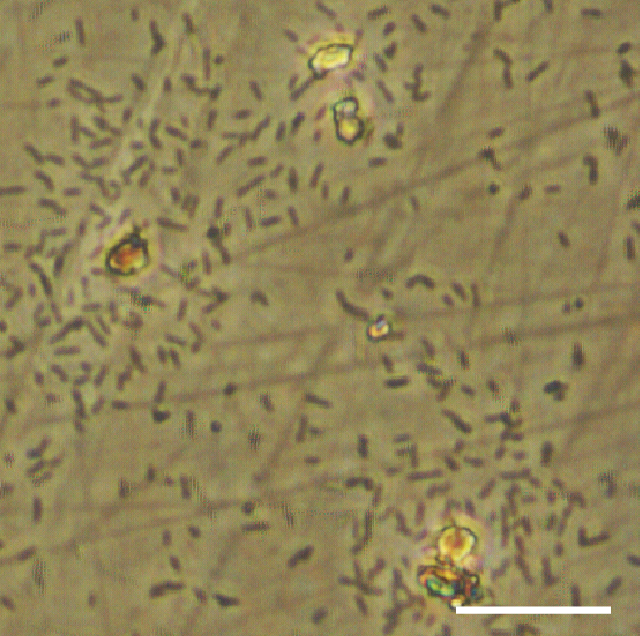Infectious urinary stones are related to urinary tract infection. The infection is the result of the activity of microorganisms producing urease, mainly from Proteus species. Urease is a characteristic bacterial enzyme performing a catalytic function, i.e. the hydrolysis of urea. As a result of further reactions caused by bacteria carbonate apatite and then magnesium ammonium phosphate hexahydrate precipitate. Polysaccharides appearing on the surfaces of bacterial cells favour the aggregation of individual crystals and adhesions of the bacteria to the epithelium of urinary cells, what consequently leads to the formation of urinary stone.

In places of concentrations of Proteus mirabilis the nucleation of magnesium ammonium phosphate hexahydrate begins. The growth process occurs in the environment of artificial urine. Scale: 20 μm.
Detailed analysis: J. Prywer, A. Torzewska, Cryst. Growth Des. 9 (2009) 3538-3543.


